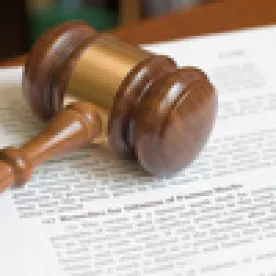The U.S. Supreme Court ruled on May 26, 2015, that a defendant accused of inducing the infringement of a patent cannot rely on a good-faith belief in the patent’s invalidity as a defense to liability. This ruling enhances the strength of claims for induced infringement within the arsenal of claims under the Patent Act.
The Court’s decision in Commil USA, LLC v. Cisco Systems, Inc. (available here) confirms that the long-held principle that a patent is presumed valid, will not be undermined by a defendant’s belief in invalidity. Allowing a good-faith belief in invalidity as a defense would have eviscerated virtually all claims of induced infringement. These claims are often made against product manufacturers, whose customers are the only direct infringers. Now, such manufacturers cannot avoid inducement liability merely by claiming they believed the patent is invalid.
Section 271(b) of the Patent Act states: "Whoever actively induces infringement of a patent shall be liable as an infringer." In 2011, the Court held that inducement liability only exists if (1) the defendant knew of the patent and (2) the defendant knew that the induced acts constitute patent infringement. Global-Tech Appliances, Inc. v. SEB S.A., 131 S. Ct. 2060 (2011) (available here).
Tuesday’s ruling vacates the decision of the United States Court of Appeals for the Federal Circuit which previously held that evidence of a good-faith belief of invalidity may negate the intent requirement for induced infringement because a jury may find the defendant did not know that “the induced acts constitute patent infringement.”
Noting that infringement and validity are separate issues under patent law, the Court stated that "invalidity is not a defense to infringement, it is a defense to liability." On this distinction, the Supreme Court held that a good-faith belief regarding invalidity cannot negate the knowledge requirement under Section 271(b) and thus allow a defendant to avoid liability.
The Court also made an important clarification regarding the mental state required for inducement, by rejecting the argument that mere knowledge of a patent is sufficient to establish intent to induce, without proof of knowledge that the acts were infringing. The Court stated, "Global-Tech requires more. It requires proof the defendant knew the acts were infringing. And the Court’s opinion [in Global-Tech] was clear in rejecting any lesser mental state as the standard."
The Court’s decision protects the viability of induced infringement claims under § 271(b) by rejecting a defendant’s belief regarding patent invalidity as a defense. Borrowing from Mark Twain, the reports of the death of induced infringement have been greatly exaggerated.





 />i
/>i
